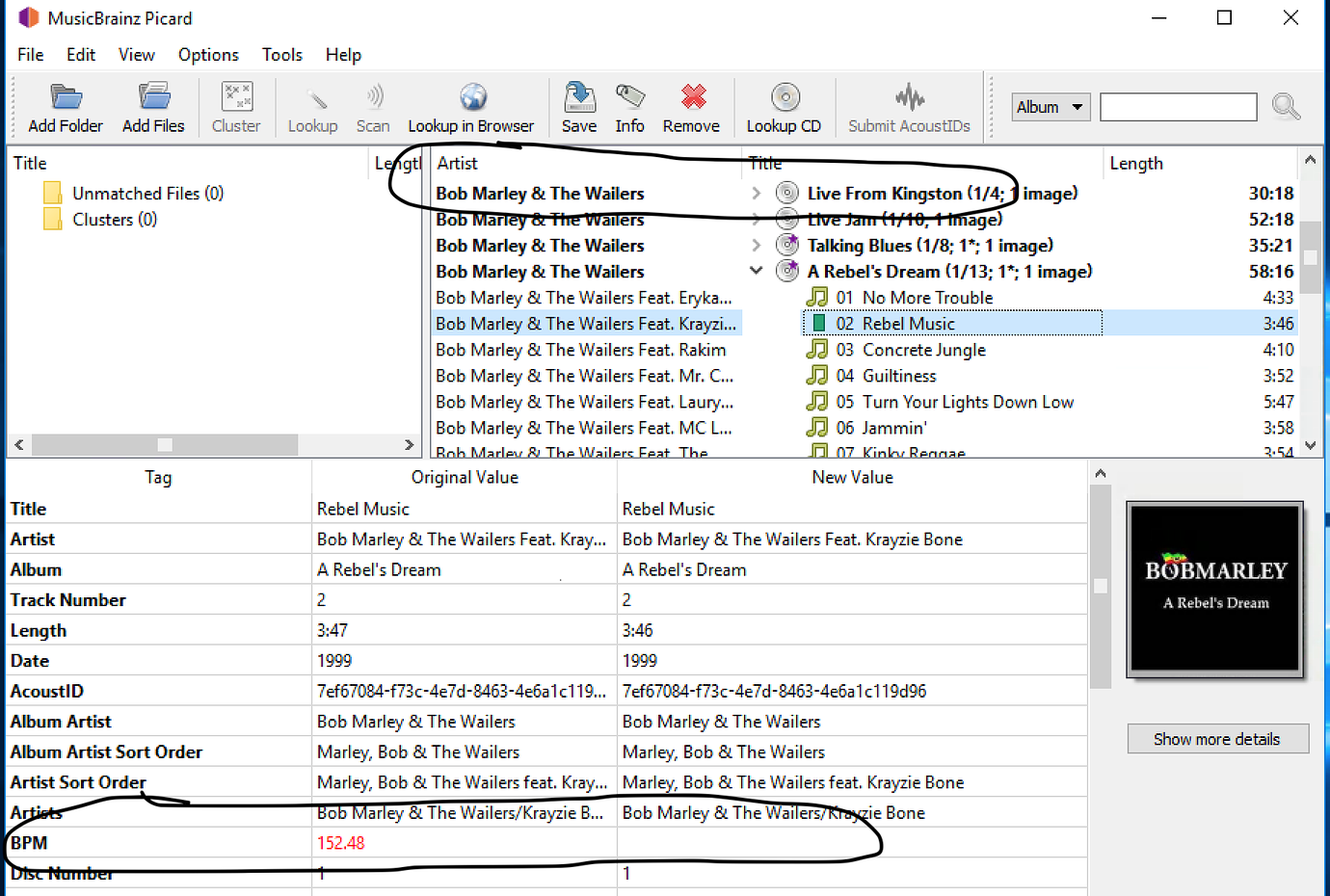

- MUSICBRAINZ PICARD PROBLEM PULLING SONG FROM ORIGINAL ALBUM SOFTWARE
- MUSICBRAINZ PICARD PROBLEM PULLING SONG FROM ORIGINAL ALBUM CODE
- MUSICBRAINZ PICARD PROBLEM PULLING SONG FROM ORIGINAL ALBUM SERIES
- MUSICBRAINZ PICARD PROBLEM PULLING SONG FROM ORIGINAL ALBUM FREE
It does work with m4a files, but Picard does not write all m4a tags (see further notes for iTunes users at the end of the "works and parts tab" section). This version has only been tested with FLAC and mp3 files. If you are using Picard 1.4.x, please choose the "1.0" branch on github and use the latest release there - also use the earlier forum thread. It only works with Picard versions 2.0 and above, NOT earlier versions. For further help, please review the forum thread or post any new questions there. There may be beta versions later than this - check my github site for newer releases. This is the documentation for version 2.0.7 of "classical_extras". Very technical matters (probably not of interest to anyone).Technical Matters (of possible interest to developers).In 2018, Picard 2.0 was released with support for Python 3, PyQt5 and a new and improved UI.This page contains the documentation for the Classical Extras plugin for Picard. In 2017, Picard's development version was made available on PyPi, supporting Windows, Linux and macOS. In 2009, Picard's developers replaced the MusicDNS acoustic fingerprinting system with AcoustID.
MUSICBRAINZ PICARD PROBLEM PULLING SONG FROM ORIGINAL ALBUM SOFTWARE
The developers also switched from a software library called wxPython to another called PyQt, and ported Picard to the operating systems Linux and macOS. When the new software identified tracks, it grouped them by album in a collapsible tree view. With funding from RealNetworks, MusicBrainz developers designed a new user interface for Picard.

Although Kaye intended the name Picard to be temporary, MusicBrainz Picard remains the official name of the program.
MUSICBRAINZ PICARD PROBLEM PULLING SONG FROM ORIGINAL ALBUM SERIES
Since Kaye was trying to make a "next-generation tagger", he thought of the science fiction television series Star Trek: The Next Generation, in which Patrick Stewart plays the role of Captain Jean-Luc Picard.

MUSICBRAINZ PICARD PROBLEM PULLING SONG FROM ORIGINAL ALBUM CODE
Īs a sponsor of the development project, RealNetworks asked Kaye to come up with a project code name. Streaming media company RealNetworks took an interest in MusicBrainz, and gave the developers a grant to improve the Tagger software. However, Kaye saw that it needed cosmetic and functional improvements. This early incarnation of the program could identify songs based on tags or MusicDNS acoustic fingerprints. It was developed in the Python programming language, and ran only on Microsoft Windows operating systems. Picard began as a tag editor called the MusicBrainz Tagger, which was the work of MusicBrainz founder Robert Kaye and other volunteers. It is named for Captain Jean-Luc Picard, a character in the US television series Star Trek: The Next Generation. MusicBrainz Picard has tag editing features, and is extensible with plug-ins. The more information the database has about a recording, the more Picard can embed in users' audio files. The source of this information is the MusicBrainz database, which is curated by volunteers. In some cases, it can also add more detailed information, such as lists of performers and their instruments. When Picard identifies an audio file, it can add new information to it, such as the recording artist, the album title, the record label, and the date of release. Audio file metadata (or "tags") are a means for storing information about a recording in the file. Picard identifies audio files and Compact Discs by comparing either their metadata or their acoustic fingerprints with records in the database. It was developed by the MetaBrainz Foundation, a non-profit company that also operates the MusicBrainz database.
MUSICBRAINZ PICARD PROBLEM PULLING SONG FROM ORIGINAL ALBUM FREE
MusicBrainz Picard is a free and open-source software application for identifying, tagging, and organising digital audio recordings.


 0 kommentar(er)
0 kommentar(er)
